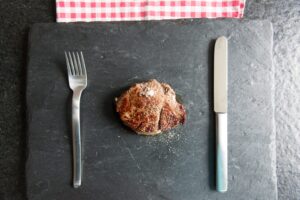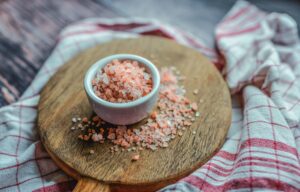Culinary Expert advise:

There is an ingredient in our daily food intake that, despite the addicting and familiar taste, when often unknowingly eaten in excess, leads to too many common health issues.
Excess of everything is bad! And the same principle applies here also. Sodium in salt can seem harmless, but it is vital to know the many harmful effects when eaten in excess and how it can be recognized and prevented in our daily diet.
I want to tell you guys especially kids, through this article, that not to fall prey to the common saying, “I take everything with a grain of salt.” Now here, the phrase, a grain of salt, may lead to two different roads. Almost everything people eat everyday contains salt, and that’s a fact. However, I would interpret it as trying to minimize the amount of salt to a few grains in your food and in few foods.

Pizzas, French fries, burger, noodles, Sandwich, Chips, wow …that’s amazing guys, those are some mouth watery dishes and things you would just love to snack on, but do you know the fact behind these delicious fast foods? They are very high in sodium content and lead to many diseases even in early stages of life!
By mentioning this, I am not trying to stop or scare you from enjoying these foods, but I want to highlight some hard facts about these dietary habits and the reasons behind why you should control the sodium amount you eat? While salt itself is important in our daily food habits, our daily intake of salt must not be more than two- third of a teaspoon, which is around 1200 to 1500 mg.
Initially, it might be hard to drastically lower your salt intake due to your current food habits, therefore kosher salt/pink salt is a great substitute to use until you get adapted to a lower salt diet. While 1 teaspoon of salt contains 2325 ml of sodium, kosher salt only has 1800 ml of sodium in it. Both kosher and pink salt have a lower sodium amount than the regular table salt.

Ways to judge whether or not you are consuming a high amount of sodium:
It is important for all of us to figure out at some point of time about our salt intake and especially at the early stages of life to develop a habit and an important change in taste buds with less salty meals. High blood pressure, irregular weight gain, bulging/ puffy skin, tiredness, etc. are just some of the laymen ways of knowing whether or not you should start lowering the sodium amounts.

Ways to reduce sodium intake:
1. Avoid salt in salads or raw foods (fruits or vegetables), instead substitute with lemon juice, black pepper, and vinegar to enhance the flavor.
2. Add apple cider or spices while cooking.
3. Reduce fast food intake from commercial kitchen, and instead cook those items at home with less salt and fresh ingredients.
4. Refrain from additional salt while consuming rice/chapatis
5. Add less or no salt when cooking seafood.
In our everyday lives, whenever we find a dish or snack lacking flavor, we tend to add salt to it without thinking of its consequences on our health. Therefore, the sodium in salt adds up and can take toll on your health even in the early stages of your life. It’s in our hands to limit the salt intake in our diet and make it a habit. There are many healthy and tasty dishes that you can cook at home using fresh and healthy ingredients with little salt in it.

Neeru Dagar
The Culinary Institute of Canada

